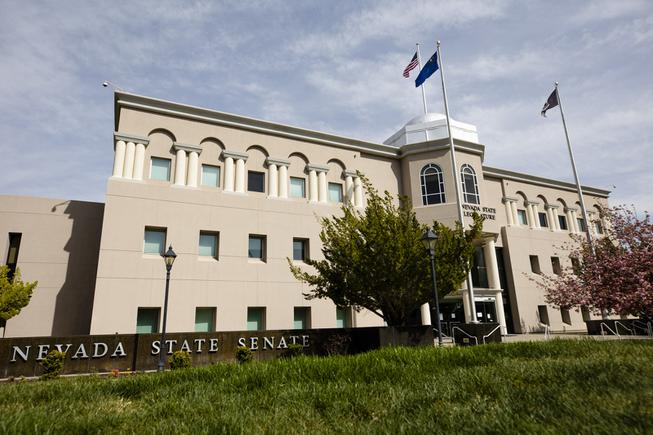Without the free cancer screening, it is likely that Emperatriz Alvarez would not have survived. For the past three decades, Alvarez has been a Las Vegas resident in the US and cannot obtain health insurance, so she depends on clinics that provide services for low or no charge.
When it came to caring for Alvarez’s uncommon type of pelvic cancer, locating and financing treatment came with numerous other issues. Alvarez expressed on Tuesday with the help of an interpreter that the overall cost of treatment was $2,000, which may not appear to be a lot, but was an impossible obstacle for her given her circumstances.
On Tuesday, Alvarez and over twenty-five advocates assembled in front of the Grant Sawyer State Office Building in Las Vegas in support of Senate Bill 419, which allows Nevada citizens to be eligible for Medicaid no matter what their immigration status is.
Representatives from Make the Road Action-Nevada, a progressive organization dedicated to the promotion of immigrant rights, were present at the event. The organization declared the initiation of a five-figure advertisement campaign, pushing legislators to pass the proposed law.
Alejandra Muneton-Carrera, the health care equity organizer for Make the Road Action-Nevada, declared that if the bill is approved, numerous members can receive essential services and care. She added that they have been struggling for a bill like this for many years, and that in order for our communities to live a dignified life, they require access to healthcare.
Sen. Fabian Donate, D-Las Vegas, initiated the introduction of the bill on March 27 as the chairman of the Senate’s Health and Human Services Committee. It was passed, with a 3-2 vote along party lines, by the committee on April 13. The bill is yet to be voted on by the Senate and is exempt from regular legislative deadlines.
The bill would make those in the Deferred Action for Childhood Arrivals program eligible for Medicaid, as long as they meet all the requirements apart from citizenship. Additionally, it would permit those aged 27 or younger to qualify, regardless of their citizenship status. Furthermore, it would cover the expenses associated with prenatal, labor, delivery, and postpartum care for those ineligible for Medicaid due to their immigration status.
If the bill is approved by the Nevada Senate, it will then proceed to the Nevada Assembly, where the Democrats have a larger majority of 28-14. To make it a law, it will require Governor Joe Lombardo’s signature or it must receive enough votes to overturn his veto. The two Republican members of the committee who rejected the bill, Senators Robin Titus of Wellington and Jeff Stone of Henderson, praised Donate for having good intentions, yet they claimed the legislation could cause supply chain issues and prevent people from receiving necessary care. Senator Titus, a doctor, remarked that she was looking out for her constituents and that this bill would heavily reduce the available supply.
Stone, a former California state legislator, pharmacist, and real estate agent, commended Donate for his comprehensive effort but expressed worries about the potential for government-funded healthcare for undocumented immigrants leading to an increase of newcomers and overtaxing the existing system. According to him, this was what he witnessed in California before he left to join Donald Trump’s Department of Labor.
Critics of the HOPE Act have raised concerns about a clause that requires the state to build a database of patient health information that can be readily accessed by the patient. Donate argued that this would be beneficial to health outcomes since a new doctor would be able to view the patient’s records from previous providers. Stone was worried that making this data so readily available could put patient confidentiality at risk.
Donate refuted those assertions and asserted the bill would not alter the current opt-in requirements, and pointed out that even undocumented immigrants—some of whom have been paying taxes for years, like Alvarez—should be given the same access to health care and contended that the state had a duty to extend its services.
Donate, a health care administrator and member of Make the Road Action, declared that regardless of whether they are legally considered immigrants or not, the taxpayers of this state who consider this place their home deserve to have access to government services. He stated that this issue is present not only in his district, but throughout the entire state, and it cannot be ignored.



